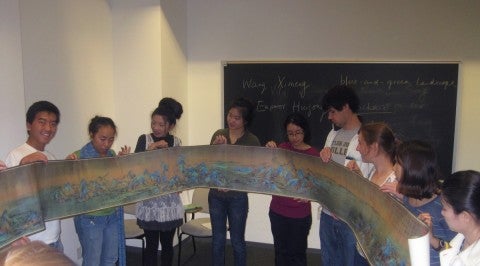Do We Know the Anthropocene When We See It?
This talk is not about the obscenity of climate change or the perverse pleasures of watching environmental catastrophe (so-called climate porn). Instead, it takes the question of this title seriously in reference to a recent documentary Anthropocene: The Human Epoch (2019), one of the first films to explore with visual and conceptual rigor the proposal for this new geological designation. Taking viewers to scenes of extraction, urban expansion, and even extinction, this film gives rise to productive confusion about the sight and state of our planet, pointing (intentionally or not) to ways that the concepts and aesthetic categories we use to make sense of our contemporary image-world may belong to a prior epoch. Insofar as we may not always know what we are seeing, the Anthropocene, especially on film, is “conceptually devastating.” I borrow this phrase from Susan Neiman in her reading of Hannah Arendt and modern evil that has philosophical and moral implications for what it means to see, know, and respond to a nature, “after” the human. This talk will turn to other texts that linger in perplexity and uncertainty, and that model alterative modalities of environmental responsibility.
---------
Jennifer Fay is Professor and Chair of the Department of Cinema & Media Arts and Professor of English at Vanderbilt University. She is author, most recently, of "Inhospitable World: Cinema in the Time of the Anthropocene" (2018) and co-editor of a special issue of "Discourse" entitled, “Cinema, Modernism, and the Perplexing Methods of Stanley Cavell.” Her contribution to that issue is entitled “Must We Mean What We Film?: Stanley Cavell’s Candid Camera.”

